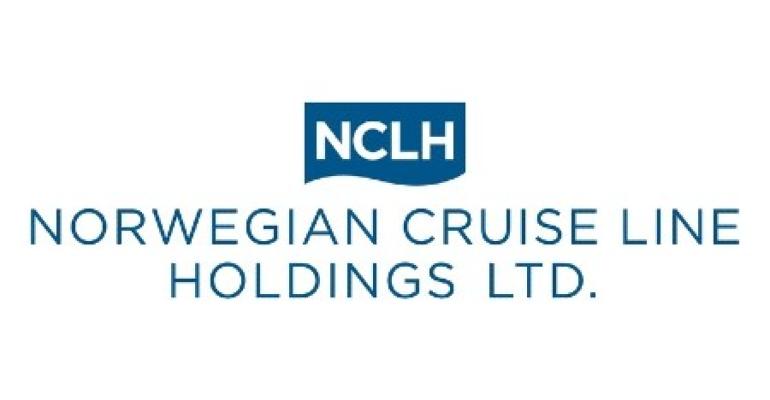This is measured on a per capacity day basis.
Scopes 1, 2 and 3
The targets cover emissions from ships, islands and facilities (Scopes 1 and 2) as well as upstream fuel- and energy-related activities, including well-to-tank emissions (portion of Scope 3). As such, the targets capture the full well-to-wake emissions impact of the company’s fuel consumption.
'Every aspect of our business from shoreside to shipboard is responsible for doing their part to design, deliver and demonstrate results for decarbonization and our board of directors has reinforced this expectation by establishing shared accountability and tying incentives for our entire management team to this critical effort,' said Harry Sommer, president and CEO-elect, NCLH.
Sommer noted the company also plans to modify two Prima-class newbuilds to accommodate the use of green methanol.
He continued: 'We are also activating and mobilizing our full network of team members, ports and destinations, suppliers and partners, and guests to act now and join us on this transformative journey, further amplifying the efforts we could achieve on our own.'
Efficiency, innovation, collaboration
NCLH's climate action strategy revolves around three pillars: efficiency, innovation and collaboration.
Optimizing efficiency for the existing fleet has an immediate impact on power consumption and GHG emissions and generates fuel savings. Included are HVAC system upgrades and waste heat recovery systems, as well as operational enhancements such as smart itinerary and voyage planning and optimization of hotel operations.
Biodiesel, green methanol
Innovation entails projects like the successful completed testing of biofuel blends on multiple ships using a blend of approximately 30% biofuel and 70% MGO. The company believes biodiesel is a viable transition fuel as long-term solutions are tested and scaled.
Longer-term, NCLH views green methanol as a promising solution. The two Prima-class ships that will facilitate this are expected to be delivered in 2027 and 2028.
The use of green methanol would result in a drastic reduction in emissions, including an up to 95% reduction in CO2. However, the production of green methanol is still in the early stages and will require continued investments to sufficiently scale for distribution and consumption globally.
Green corridor, shore power
Collaboration entails work with NCLH's network of stakeholders including suppliers, communities, governments and NGOs to partner and find solutions to combat climate change. The company is active in associations such as the Methanol Institute, and in regional forums such as the Pacific Northwest to Alaska Green Corridor.
NCLH also encourages ports to accelerate the use of shore power while equipping its ships with the technology needed to plug in and aims to have approximately 70% of its fleet equipped by 2025.
Copyright © 2024. All rights reserved. Seatrade, a trading name of Informa Markets (UK) Limited.
Add Seatrade Cruise News to your Google News feed.  |

